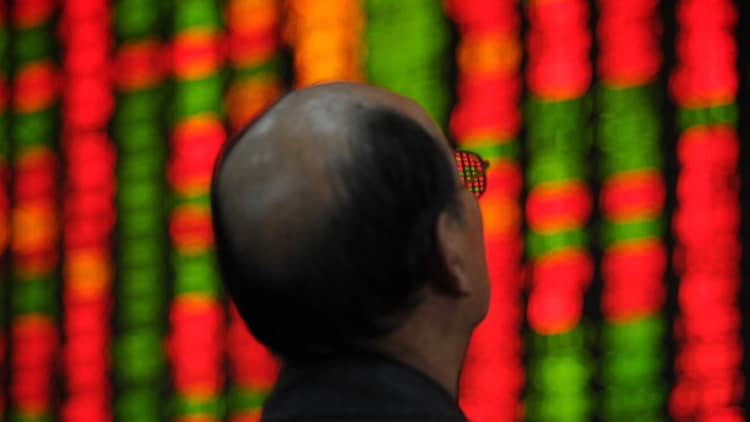
China's government "encouraged" an equities boom, and the "craziness" of the country's stock market echoes the late 1920s in the United States, hedge fund manager Paul Singer said Wednesday.
"It's not just a bull market, it's wild," the founder and president of Elliott Management said at the Delivering Alpha conference presented by CNBC and Institutional Investor.
Activity in China, which has included government efforts to ease policy and ramp up economic growth, reflects an "ever-growing" trend toward intervention, Singer said. He contended that bond-buying and easy interest rates in many corners of the world make it difficult to quantify how much markets are really worth.
China's Shanghai composite index, for instance, has climbed more than 80 percent in the last year.
"The prices are manipulated by governments," he said, adding that investors "can't trust" the value of some equities.
He noted, though, that it "may not be big enough to cause a global financial market conflagration."
Singer also criticized the central banks in the United States and Europe, as he decried the risks of continued near-zero interest rate policy from the Federal Reserve. A recession in the U.S. or Europe amid loose monetary policy would turn "truly ugly" for global markets, he said.
A downturn in either area could lead to additional quantitative easing, bringing even more uncertainty into bonds. Many market watchers have questioned bond liquidity in the wake of bond-buying programs from the Fed and the European Central Bank.
Read MoreGundlach at Delivering Alpha: Fed's not hiking
Singer touched on other topics, including his clash with Samsung C&T after his fund objected to a merger deal.
Singer, who owns about 7 percent of Samsung's shares, said he "drifted into" the disagreement rather than coming at it as an activist investor.






